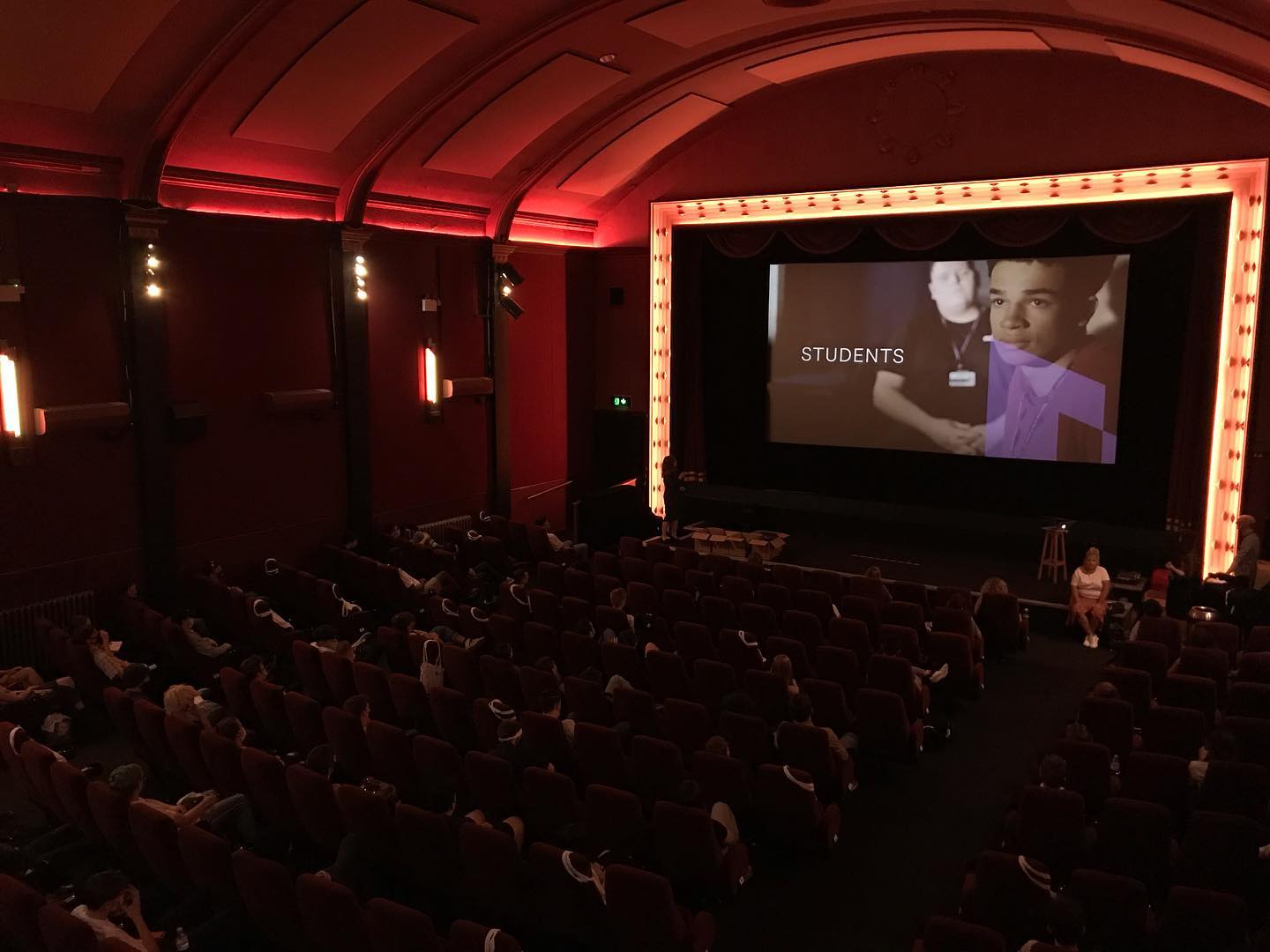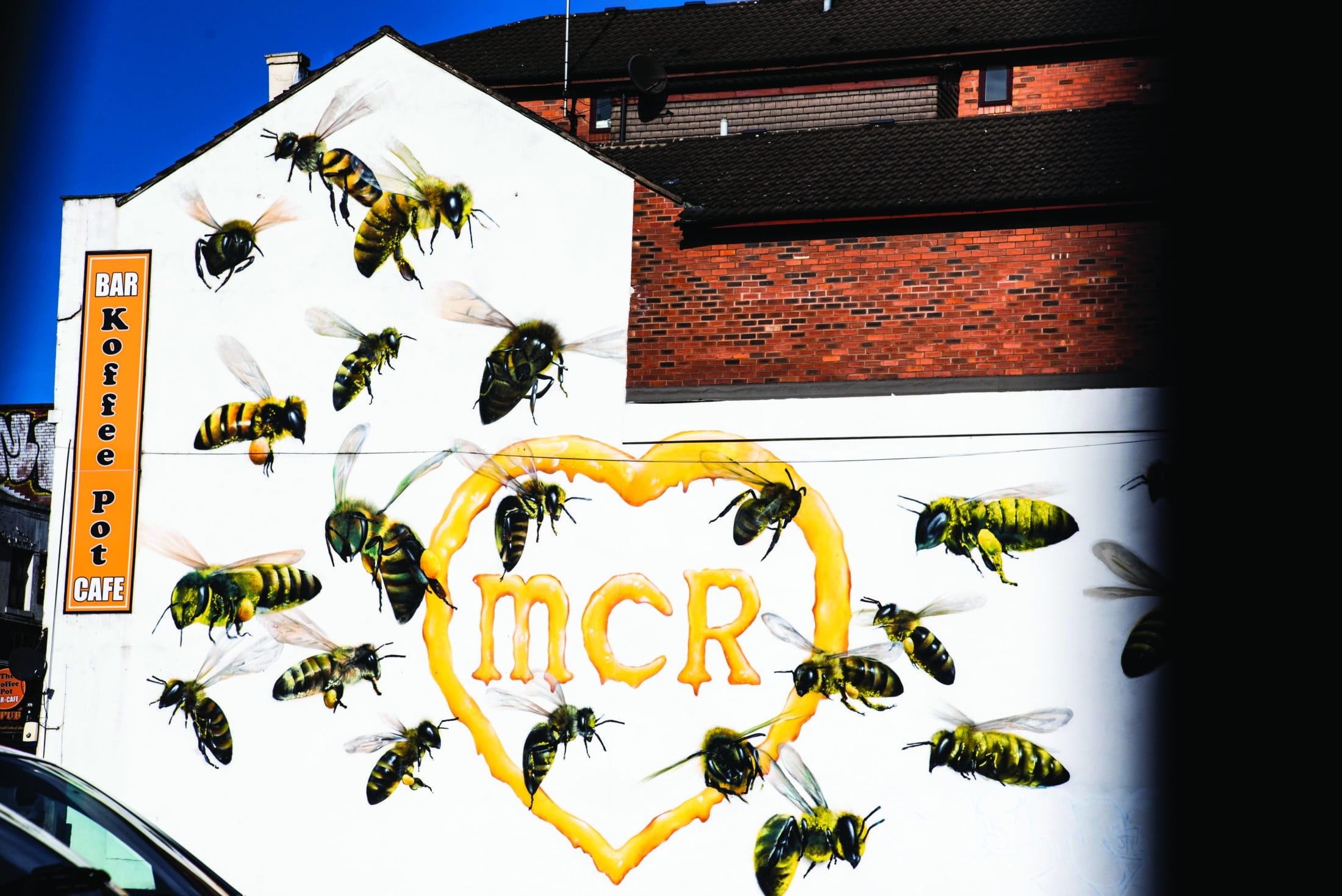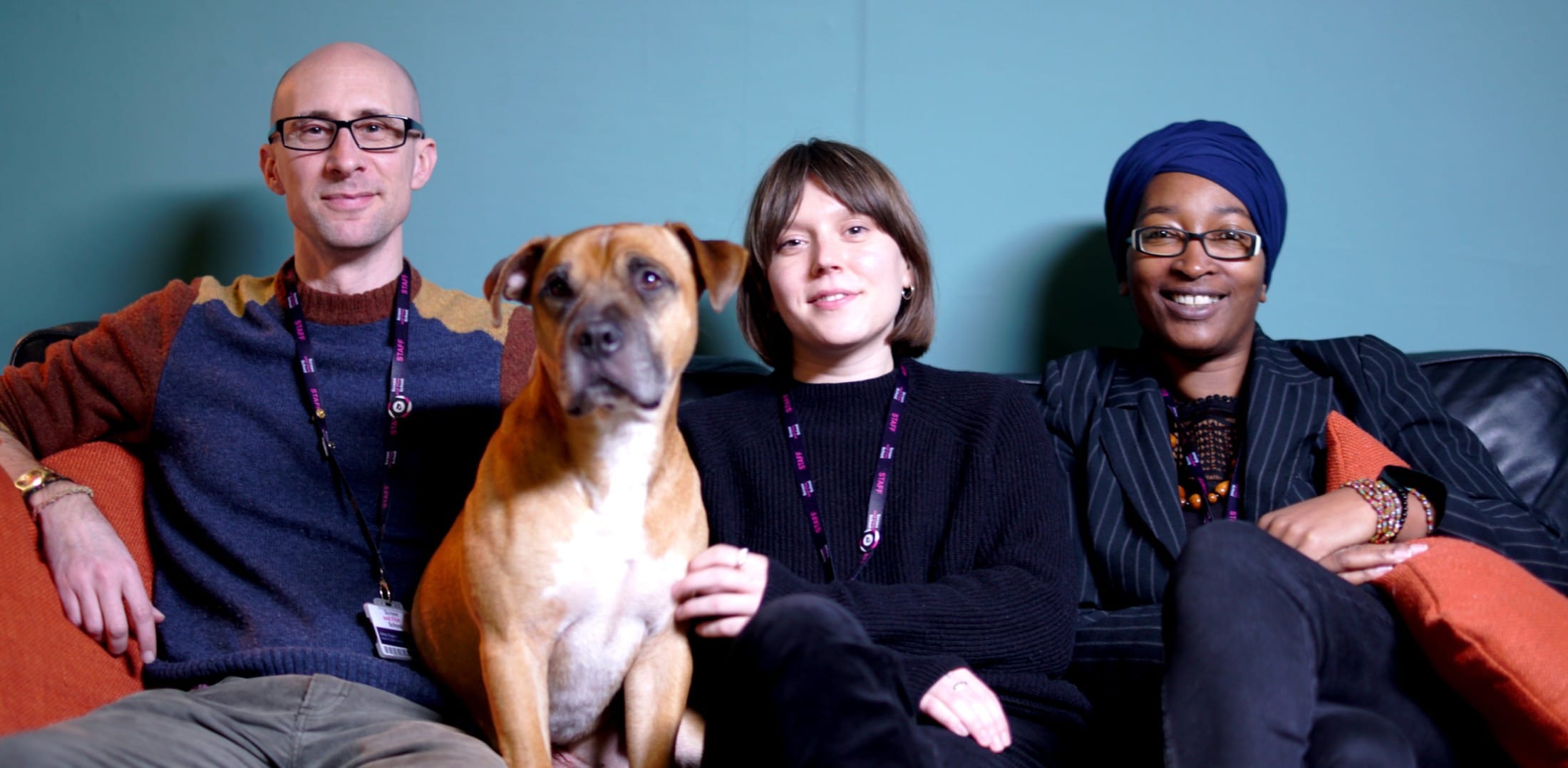Today is International Women’s Day, so to celebrate we’re going to look back at a recent masterclass at Screen and Film School Manchester with Francesca Zerenghi, who is the founder of Cinegirl.
Cinegirl is an independent magazine that is centred around an expansive array of topics written by and featuring talented women working within the industry today.
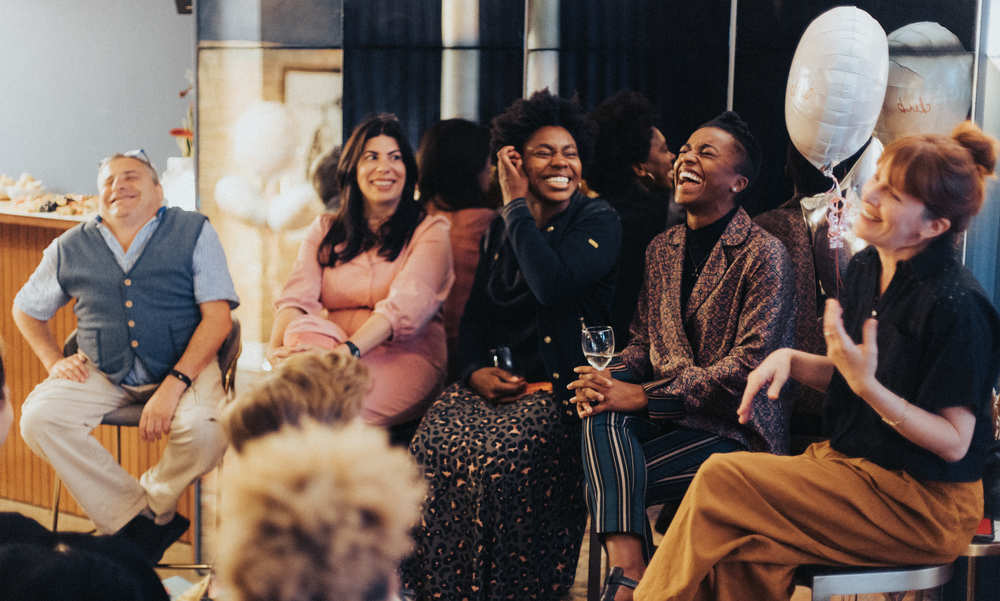
Photo credit: Nic Roques
This Manchester masterclass was in the run up to International Women’s Day, and Francesca and her team are flying the flag for women in film. International Women’s Day falls on March 8 every year and part of their mission statement is to ‘Celebrate women’s achievements and raise awareness about discrimination.’ This year’s chosen theme is #EmbraceEquity and the aim of this particular campaign theme is to get the world talking about why equal opportunities aren’t enough. People start from different places, so true inclusion and belonging require equitable action. This theme seems to speak to the reasons why Francesca founded Cinegirl.
What is Cinegirl?
Francesca’s background is in cinematography. When she started out in the film world, shooting corporate videos, it was made quickly apparent that there wasn’t enough visibility around her for women but also for other communities. Cinegirl strives to address this by means of the publication. In addition to this, Francesca identified that there was also a huge lack of female and non-binary representation across film and tv publications. Cinegirl aims to feature voices from all departments, not just the technical crew behind the camera. They want to celebrate the art and craft of the unsung heroes that are usually behind the scenes.
With that ethos in mind, Cinegirl was born. Francesa and her team have certainly stayed true to the original message and the digital and print publication celebrates the work of all filmmakers of any race, colour, age, nationality, religion, gender expression, sexual orientation, health condition or disability.
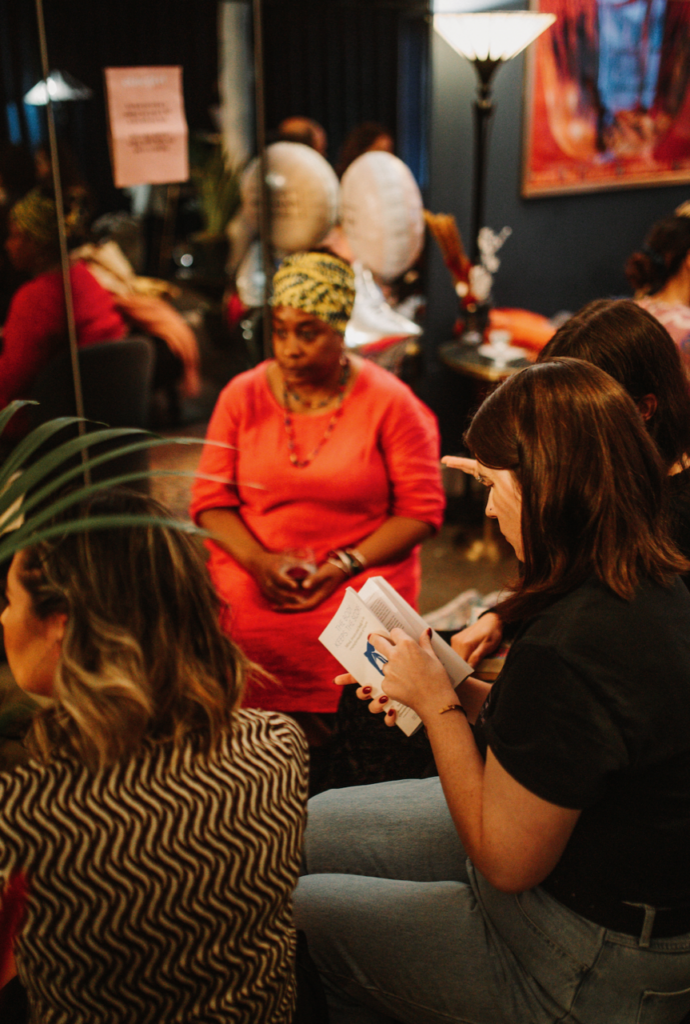
Photo credit: Nic Roques
What kind of content does Cinegirl feature?
Across their various platforms – website, print, social media and in-person social clubs – Cinegirl allow their freelance writers and content producers to flourish. Recent features have included an insightful case study on how to get an agent, by Tom Watts, who is a director of photography and is also non-binary and neurodiverse. Writer Anna Halasz recently went to the BSC Expo, where she interviewed the founder of the The British Blacklist, Akua Gyamif. As well as this, in 2022 Francesca herself interviewed Olivia Newman, superstar director of Where the Crawdads Sing, as well as Mandy Walker, the cinematographer behind the Oscar-winning hit Elvis. Editorials never stray too far from the film world, even when they’re food related. Sarah Scott picked out the perfect recipe for Cinegirl readers when she gave the lowdown on Veganuary, but the focus was on foods that would best suit the long days of being on set.
Student questions
At the end of all our industry masterclasses, the local teams try to allow for interaction between the guests and our students and at the end of Francesca’s brilliant presentation there was time for a short Q&A.
From the perspective of a producer, how do I go about finding trends and look for inspiration?
“I read a bit of everything. I have certain platforms and companies that I follow. Years ago, choices were more limited but now we have a mixed bag of things – think Netflix – we need that diversity. Once you start with one publication or one platform it will grow organically, and you will learn about what interests you.”
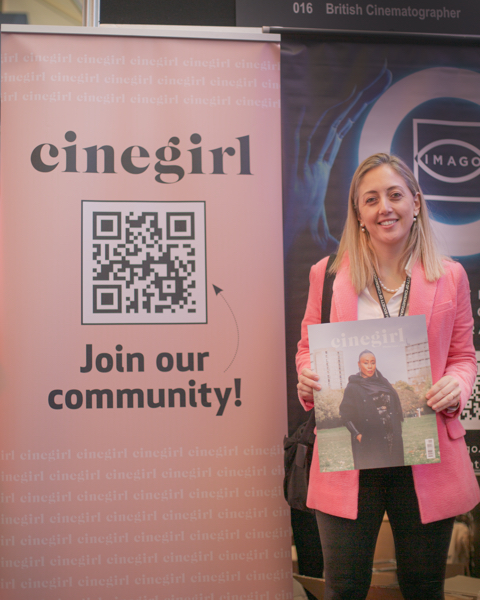
Photo credit: Hannah Drew
What is your background in cinematographer? Where have you worked previously?
“Mosty always in the UK. I’ve been a camera assistant, working on commercials and because I was already a parent that suited me down to the ground. I could cherry pick my locations – the schedule had to work and it needed to be paid. Parenting can have an influence on work in that way. Then I had a bit of a shift; working on set was enjoyable but there was an internal urge to write, as I’ve always enjoyed writing. Early in the Cinegirl adventure I realised that I enjoyed everything about it more than I did freelancing in the film industry. That’s not to take anything away from being on set – it is a privilege and I made a lot of friends.”
Once we enter the industry and have to start thinking about navigating our workload, our income and our time, do you have any advice on how to do this?
“You have to learn how to have really honest conversations with yourself and the difficult part is saying no to things. When you’re freelancing there is a temptation to say yes to everything, but you will end up never taking breaks. You’re going to burn out. There is also a culture of a self-sacrificial mindset, which thankfully is changing. Of course, you have to think about your finances, but as an adult you will have to think independently, and it is a great feeling not owing anything to anybody. The other thing I would say is, social media can breed imposter syndrome. Try not to read too much into it and become disheartened. It isn’t always reality. Everyone has imposter syndrome – it means that you care about what you do – but try to offset it by having other hobbies and interests and don’t read into other people’s apparent successes too seriously.”
That was the voice and wisdom of Francesca Zerenghi, the founder of Cinegirl. On International Women’s Day we would like to congratulate Francesca and everyone involved in this brilliant publication for their dedication to the cause of representing those people and stories in film that are most underrepresented. We would also like to thank Francesca for speaking to our students and inspiring them to be the creators and innovators of the future.
Are you interested in being a part of the new legacy at Screen and Film School Manchester?
Sign up to one of our Open Days:
Find out more information on our courses by clicking below:

